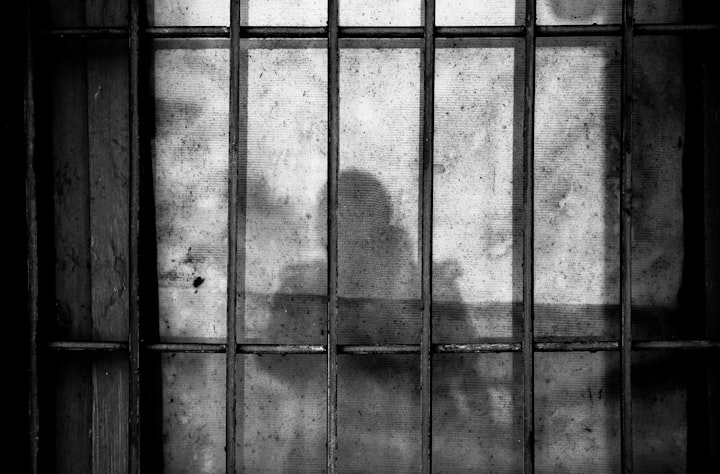"From Trauma to Nightmare: The Aftermath of Reporting Sexual Abuse to the Police"
"Survivors Speak Out on the Challenges and Triumphs of Seeking Justice"

I. Introduction
Sexual abuse is a traumatic experience that can have lasting effects on survivors. It can lead to emotional and physical trauma, as well as societal stigma. Seeking justice is an important step towards healing, but for some survivors, reporting their abuse to the police can turn into a nightmare scenario.
A. Explanation of Sexual Abuse Trauma
Sexual abuse trauma is a complex and multi-layered experience. It can involve physical and emotional abuse, as well as manipulation and coercion. Survivors may experience feelings of shame, guilt, and fear as a result of their abuse. These feelings can lead to long-term mental health issues such as depression, anxiety, and post-traumatic stress disorder (PTSD).
B. Importance of Seeking Justice
Seeking justice is an important step towards healing for survivors of sexual abuse. It can provide a sense of closure and validation, as well as help prevent future abuse by holding perpetrators accountable. However, for many survivors, reporting their abuse to the police can be a difficult and traumatic experience.
C. Overview of the Nightmare Scenario When Reporting Abuse to Police
Reporting sexual abuse to the police can turn into a nightmare scenario for survivors. Negative responses from law enforcement, lack of support and resources, and re-traumatization and victim blaming can make the reporting process even more difficult for survivors.
II. The Aftermath of Sexual Abuse
A. Emotional Trauma
Sexual abuse can lead to a range of emotional trauma for survivors, including anxiety, depression, and PTSD. Survivors may also experience feelings of shame, guilt, and fear, which can impact their relationships and daily life.
B. Physical Trauma
Sexual abuse can also lead to physical trauma, including injuries and sexually transmitted infections. Survivors may also experience chronic pain and other health issues as a result of their abuse.
C. Societal Stigma
Survivors of sexual abuse may face societal stigma and shame, which can make it difficult to speak out and seek help. This stigma can also impact survivors' relationships and ability to trust others.
III. Reporting the Abuse to the Police
A. Importance of Reporting
Reporting sexual abuse to the police is an important step towards justice and healing for survivors. It can help hold perpetrators accountable and prevent future abuse.
B. The Experience of Reporting
Reporting sexual abuse to the police can be a difficult and traumatic experience for survivors. It often involves recounting traumatic events and reliving the experience, which can be emotionally taxing. Survivors may also face negative responses from law enforcement, which can be discouraging and disheartening.
C. Common Obstacles When Reporting
Common obstacles when reporting sexual abuse to the police include lack of resources and support, lack of understanding and empathy from law enforcement, and fear of retaliation from the perpetrator.
IV. The Nightmare Scenario
A. Negative Response from Law Enforcement
Survivors may face negative responses from law enforcement when reporting their abuse, including disbelief and minimization of their experiences. This can be re-traumatizing for survivors and make it more difficult for them to seek justice.
B. Lack of Support and Resources
Survivors may also face a lack of support and resources when reporting their abuse. This can include a lack of access to counseling and other mental health services, as well as a lack of understanding and empathy from law enforcement.
C. Re-traumatization and Victim Blaming
Survivors may also face re-traumatization and victim blaming when reporting their abuse. This can include being asked insensitive and triggering questions, as well as being blamed for their own abuse.
V. The Impact on Survivors
A. Psychological Impact
Survivors of sexual abuse may experience long-term psychological effects, including anxiety, depression, and PTSD. These effects can impact their daily life and relationships. Survivors may also struggle with self-esteem and self-worth, as well as feelings of guilt and shame.
B. Physical Impact
Sexual abuse can also have physical effects on survivors, including injuries and sexually transmitted infections. Survivors may also experience chronic pain and other health issues as a result of their abuse.
B. Physical Impact
Sexual abuse can also have physical effects on survivors, including injuries and sexually transmitted infections. Survivors may also experience chronic pain and other health issues as a result of their abuse.
C. Legal Impact
Reporting sexual abuse to the police can also have legal consequences for survivors. Survivors may be required to testify in court, which can be emotionally difficult. They may also face retaliation from the perpetrator or others.
VI. Coping with the Nightmare
A. Seeking Support
Seeking support is an important step towards healing for survivors of sexual abuse. This can include therapy, support groups, and other mental health services. It can also involve reaching out to loved ones for emotional support.
B. Engaging with Advocacy Groups
Survivors can also find support by engaging with advocacy groups, which can provide resources, information, and a community of others who have experienced similar trauma. Advocacy groups can also help survivors navigate the legal system and access other support services.
C. Legal Options
Survivors may also have legal options available to them, such as filing a civil lawsuit or seeking a restraining order. It's important for survivors to speak with a lawyer who specializes in sexual abuse cases to understand their legal rights and options.
VII. Conclusion
The nightmare scenario of reporting sexual abuse to the police can have a lasting impact on survivors. Negative responses from law enforcement, lack of support and resources, and re-traumatization and victim blaming can make the reporting process even more difficult for survivors. However, it's important for survivors to know that they are not alone and that there are resources and support available to them. Speaking out and seeking justice is an important step towards healing and preventing future abuse. Survivors should be encouraged to seek the support they need and know that they deserve justice and healing.
About the Creator
Yuvaraj Murugasan
"Discover thought-provoking content on our page. From latest news and mystery,crime,thiriller,death to cutting-edge technology, we offer something for everyone. Join us for a journey of learning and inspiration. Stay tuned!"






Comments
There are no comments for this story
Be the first to respond and start the conversation.